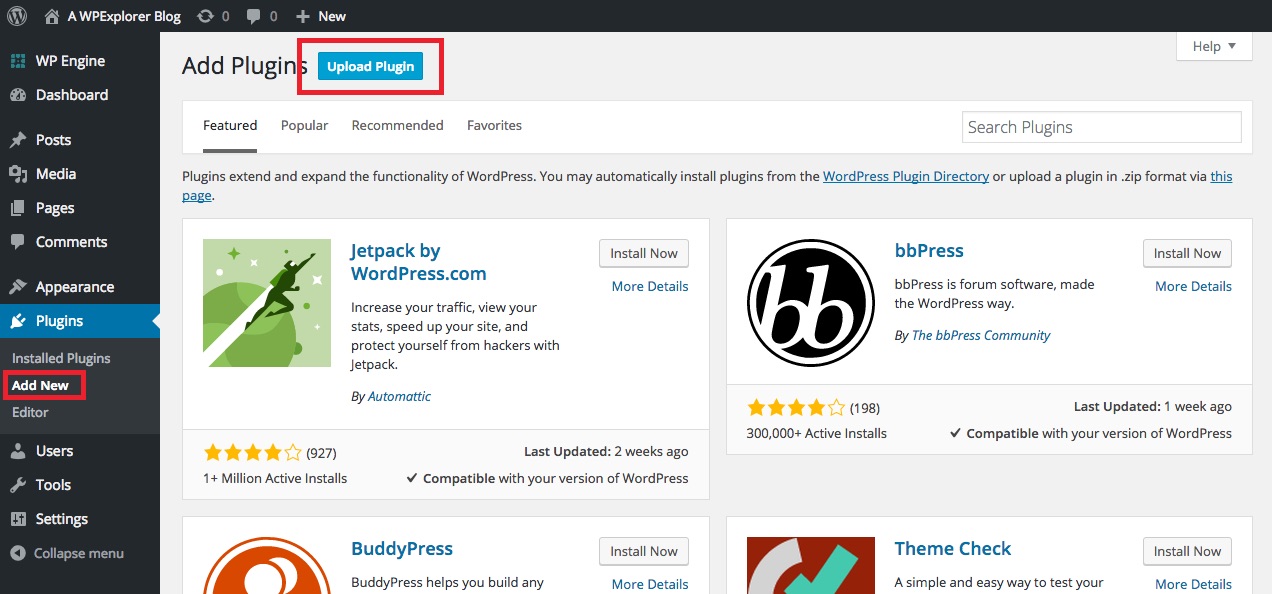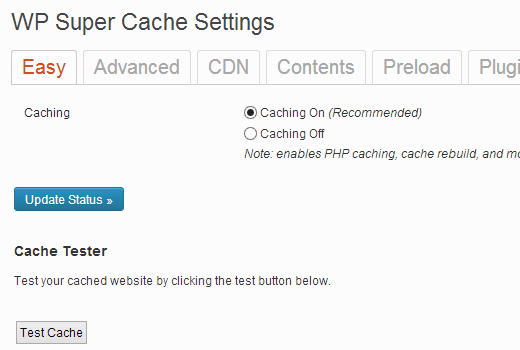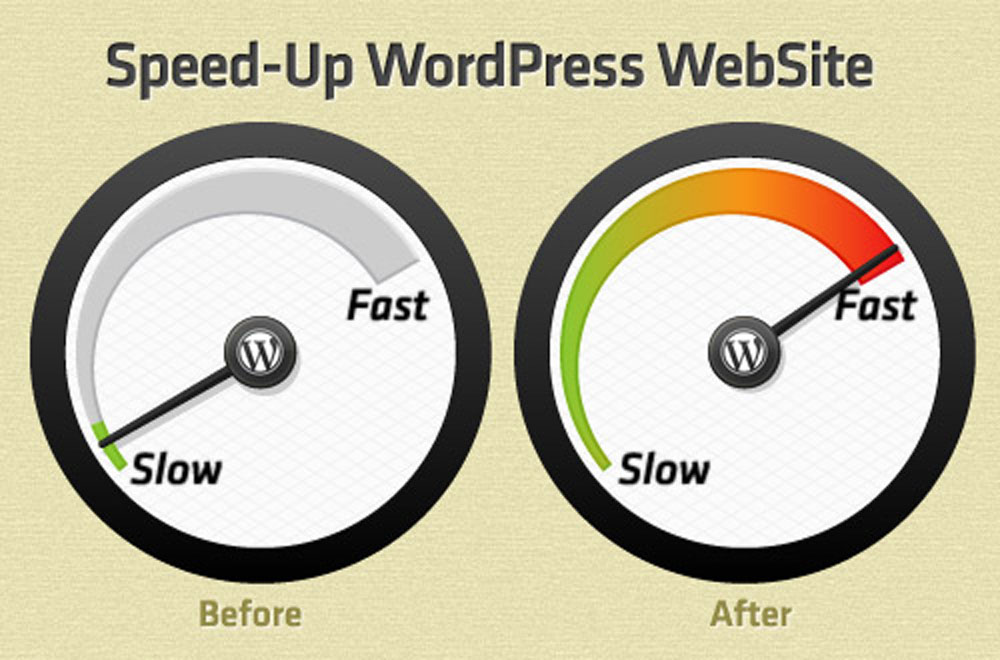Speed Up Your WordPress Website
There are several factors to know how to speed up your WordPress website. Technology conditions of WordPress as a CMS platform and dynamic website generator is one of the basic tools that a WordPress blog slow. Differences between the basic static website and dynamic interactivity in the scripting that lacks the static website.
Besides the software WordPress, there are a variety of factors that affect the performance of your WordPress pages. I want to list them out briefly below:
1. WordPress Extensions
Here I mean WordPress themes and plugins. you may fail many times while choosing a theme/plugin and end up choosing a horribly coded theme or a plugin.

Another important factor determining the rate of the server site hosted on your site. If in case you are planning to use the cost of hosting, make poor production performance site and the site you frequent downtime.
2. Hosting and Servers
Another important factor determining the speed of the site server hosted on your site. If in case you are planning to use the hosting cost, make it produce a poor performance of the site and the site you frequent downtime.

Which basically means that besides hosted on a shared hosting server is slow from the same has been shared by several users, sometimes hundreds of sites share the same service.
3. The user device
The revolutionary technology of the day was focused primarily on improving the ability to process the user. Tool wear can not cover components advanced modern design has been brought up, so your site loads slowly.

Now here comes the main aspect of the post, How to speed up your WordPress site ??
Let’s explore them:
1. Update WordPress, Theme and Plugins
WordPress as the most popular CMS is now growing by several updates now. And there is always some or other updates intended to make software more secure and also fixing issues seen in the previous version/update user-friendly.

Thus, core WordPress software update will keep you away from some of the security issues and the potential speed slowing caused by outdated code. Thus, keep your WordPress version up to date will help to improve the performance of your site. You must also keep updated themes and plugins. Keeping them updated will help you keep your site safe and speedy.
2. Enable Caching
Cache immensely helpful to reduce the loading time and one can experience instant improvement. Cache generates static HTML files from dynamic WordPress and HTML file functions are saved to reduce the burden of processing on the server and improve the performance of the site.

Among many plugins, WP Super Cache and W3 Total Cache are best of the WordPress caching plugins. You can download any of them FREE from official WordPress plugin directory and install on your site.
3. Optimize WordPress database

This is one of the main reasons why your website takes a lot of time loading the page.There are several plugins for WordPress efficient in cleaning up your WP database and increase the speed of the glass. WP-optimized, DBManager WP, WP Clean UpOptimizer, and WP-Sweep is some of the best in them.
4. Optimize images
Images usually cover the hall from wp-content you. large image files take a lot of time loading and reduce the speed of the entire site. So image optimization is a vital task to improve the speed of your site.

To minify the image size manually, you can use tools such as image compression TinyPNG. This compresses the JPEG and PNG image files by 50-80% without losing image quality. There are many plugins for image compression that automatically reduces the size of image files and increase the speed of the site, such as WP Smush na www Picture Optimizer. This free plugins automatically smush JPEG and PNG files and optimize site speed.
5. Use a lazy load WordPress plugin
Lazy load is smart techniques for image-heavy websites, which are usually frustrating since they need to face life. She loads up to loading images, i.e. it only loads images “above the fold” – the user would like to see. When the user scrolls down, take a picture below will go into one. Because it defers loading all images at once, the glass load quickly and ensures users happy.

BJ Lazy Load is an awesome WordPress plugin for WordPress speed optimization. It replaces all the images and iframes so that images load one by one as users scroll down instead loading all at once.
6. Enable Gzip Compression
Gzip compression means the grouping of files to reduce file size and make it easier to transfer. It is a great way to make your WordPress site load faster as it reduces the size of your HTML, CSS and JS files.

WP Super Cache, Check and Enable GZIP Compression and W3 Total Cache are some of the useful WP compression plugins.
7. Choose an efficient hosting provider
The site speed is not always in your hands as most of the time it depends on the web-hosting provider. Different web hosting schemes like shared hosting, virtual hosting, managed WordPress hosting don’t always ensure the similar level of page speed. The sites which are hosted on shared hosting mostly have poor site performance as many sites are hosted on the same server.
For WordPress users, managed WordPress hosting is an opportunity in which the web host ensures the best level of site performance. Your task as a website owner reduces by half as web host providers take care of overall site performance by themselves.
8. Disable Pingbacks and Trackbacks
Pingbacks & trackbacks are the notifications that you likely to receive each time when somebody puts the link to your post/ page on another website. They are one of the best features of WordPress, however, they are also acting as the sources of spams to your WordPress site. So disabling pingbacks and trackbacks is considered to be a wise idea avoiding spamming and keeping your site secure and speedy.
9. Use the proper number of plugins
Plugins add a lot of functionality to your WordPress site however, they come with some flaws. Installing too many plugins means gathering a lot of mess on your site, which increases the site database and reduces the page speed. So, you must make sure to have only the selected plugins installed on your site. Deactivate and delete all the unnecessary plugins, update and monitor the useful activated plugins and keep your site lightweight.







Leave A Comment